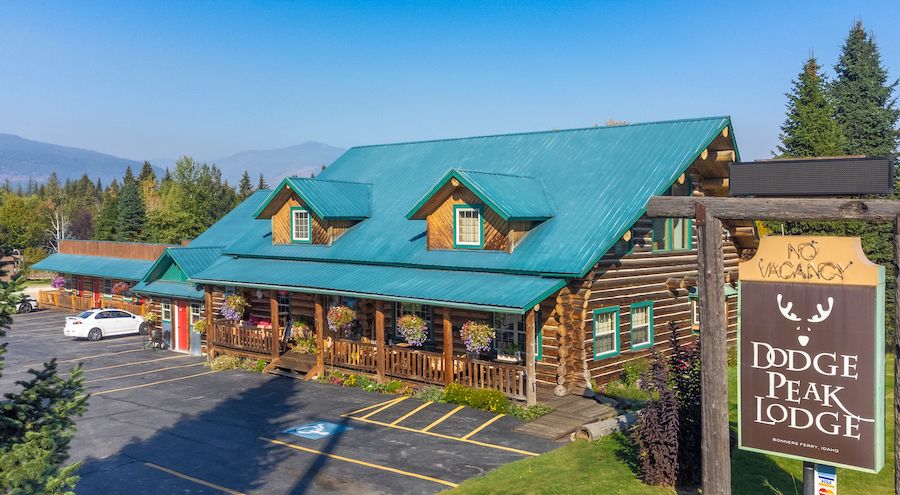This article was originally published in Hotel News Now on April 5th 2023 and has been republished with permission.
Historical Overview: The Pre-Internet Era
Before the advent of the internet, hotel owners looking to expand their business had two main options. The first was to franchise their establishment under a publicly traded brand, a decision that came with stringent corporate control, hefty fees amounting to 15%-20% of total room revenue, and expensive property-improvement plans (PIPs) costing at least $20,000 per room for a midscale motorway hotel. The second option was to remain independent, relying on traditional marketing channels such as billboards, road directories, and print advertising to attract guests and encourage repeat business.
Comparison of Pre-Internet Expansion Options for Hotel Owners
| Option | Description | Costs |
|---|---|---|
| Franchise with Brand | Adopt a publicly traded brand name, adhere to standardized design and service requirements (PIPs). | 15%-20% of room revenue, plus PIP costs. |
| Remain Independent | Market the hotel through traditional means (e.g., billboards, print ads). | Variable, depending on marketing strategy. |
The Digital Revolution: Emergence of Online Travel Agencies (OTAs)
The launch of Expedia in 1999 marked the beginning of the online travel agency (OTA) industry, offering independent hotels unprecedented national and global visibility. This development led many to question the necessity of franchising, given the significant exposure OTAs provided. However, the rapid adoption of OTAs like Orbitz and Travelocity after the halt in worldwide travel post-September 11, 2001, introduced new challenges, including high commission rates of 25% and the complexity of managing multiple booking channels.
The Magnuson Hotels Initiative
In 2003, Melissa Magnuson and I founded Magnuson Hotels with a vision to empower independent hoteliers to succeed without succumbing to the pressures of larger, franchised entities. Our mission was to offer fair, transparent, and ethical franchising opportunities free from the burdens of PIPs, excessive fees, and restrictive contracts. Our message resonated across the U.S., challenging the longstanding perception that only branded hotels could guarantee quality.
Growth and Impact
From its humble beginnings with 12 small hotels, Magnuson Hotels has expanded to over 2,000 establishments across the U.S. and the U.K., positively impacting approximately 175,000 individuals involved in the hotel industry. This growth underscores a significant shift in the landscape, with independents gaining unprecedented representation and the rise of soft brands and Airbnb challenging the narrative around standardization and uniqueness.
Evolution of Hotel Marketing and Distribution Channels
| Era | Key Players/Options | Impact on Hoteliers |
|---|---|---|
| Pre-Internet | Franchises, Billboards, etc. | High costs and strict controls for franchises; limited reach for independents. |
| Post-Internet | OTAs, Airbnb | Greater exposure but higher commissions for OTAs; Airbnb introduced a new competitor but also validated the uniqueness of independent hotels. |
Challenges and Opportunities
The hotel industry faces ongoing challenges, including OTA commissions, market saturation by new chain hotels, and the invisible competition from non-registered Airbnb listings. Despite these hurdles, independent hoteliers have more tools than ever to connect with a global audience while maintaining their unique identity. Innovations in technology and operations are essential for navigating the current landscape and ensuring profitability.
Conclusion
The journey from traditional franchising to embracing digital platforms and maintaining independence marks a significant evolution in the hotel industry. While challenges persist, the opportunities for growth, visibility, and profitability have never been greater for independent hoteliers. As we continue to navigate this changing landscape, the emphasis on fair franchising, community engagement, and leveraging technology will be crucial for sustained success.
Thomas Magnuson, Co-Founder of Magnuson Hotels
Thomas Magnuson is the co-founder of Magnuson Hotels, which has headquarters in London and Spokane, Washington.
The opinions expressed in this column do not necessarily reflect the opinions of Hotel News Now or CoStar Group and its affiliated companies. Bloggers published on this site are given the freedom to express views that may be controversial, but our goal is to provoke thought and constructive discussion within our reader community. Please feel free to contact an editor with any questions or concern.


